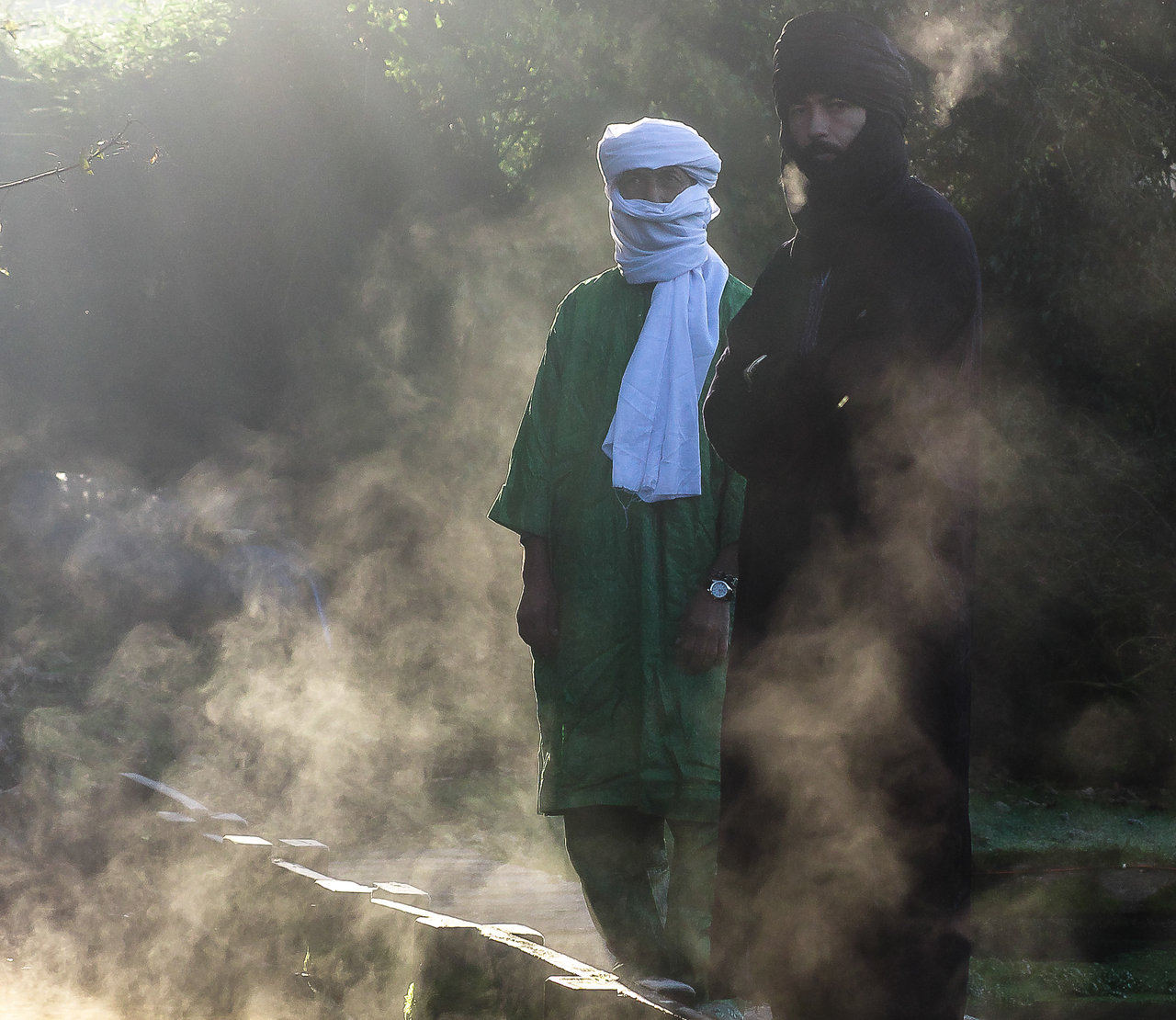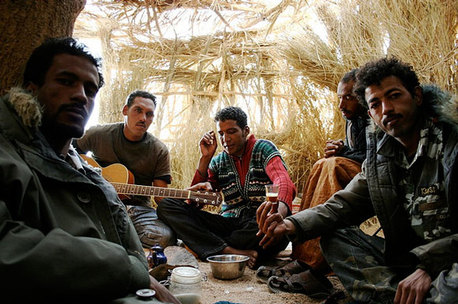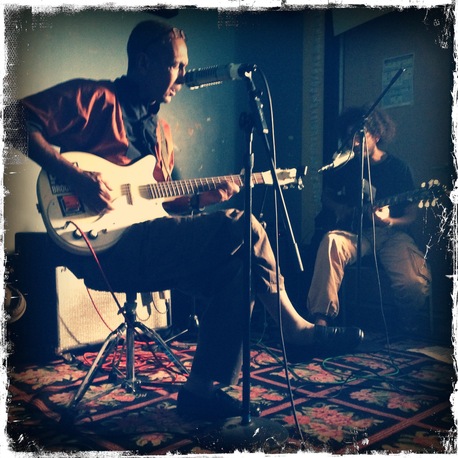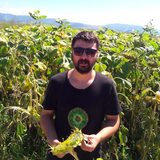Written by:
Share article:
A guitar riff
As we mind our own business, selecting hypnotic trancelike songs on the terrace of the Bucharest based Control club, we easily fell for the feeling of a glorious day that we’re about to experience. Well, also the cold beers play their part very well.
Speaking of beers, at some point I go inside the club for a refill. As I’m heading towards the bar - joyfully clacking my fingers from the right hand - I get demolished by an intense guitar riff, coming from the next room. Psychedelic. Ridiculously good. A twisted sound out of an electric guitar. I instantly turn and get in - goosebumps. Diara and his nephew Sanou are playing guitars on stage, while waiting for the other two members - Andrew and Nicholas - to come for the sound-check. In just a few hours later, the Tuareg band Terakaft would play a concert for the first time in Romania. I don’t know why, but I think Jimmy Hendrix would have dug this.
Experiencing Terakaft live was memorable. The show was extremely energetic, uplifting. There were some passages where you just couldn’t sit still, you had to dance; there was an insane groove electrocuting the audience. And then there were also slow blues like passages, in a good old classic form, adapted to the unique and fascinating sound of the Tuareg style of playing guitar. Forget about all the recordings you’ve listened before, all the interviews you’ve read with Tuareg bands, all the videos you’ve watched on YouTube from different festivals. For the first time ever, this was real; it could be felt, heard, touched, seen, discovered, experienced. Later on, during those tiny minutes from the middle of the night, when the concert happened, magic appeared as a natural thing and we were all part of that moment. An evanescent moment that you’ll remember long after it has been vanished.
As previously reported, in may 2015 Terakaft released a new album titled ‘Alone’ (on Out Here Records) and produced by Justin Adams. The sound of Terakaft (meaning "caravan" in Tamasheq) is sculpted by the pure searing air and the endless rolling sands of the Sahara. The stark, harsh conditions of the desert have permeated their wild riffs, and as a result they are the perfect embodiment of all that is wild and free in desert blues today.
We spoke with the band’s members to find out more about the origins of Terakaft and the Tuareg music.



